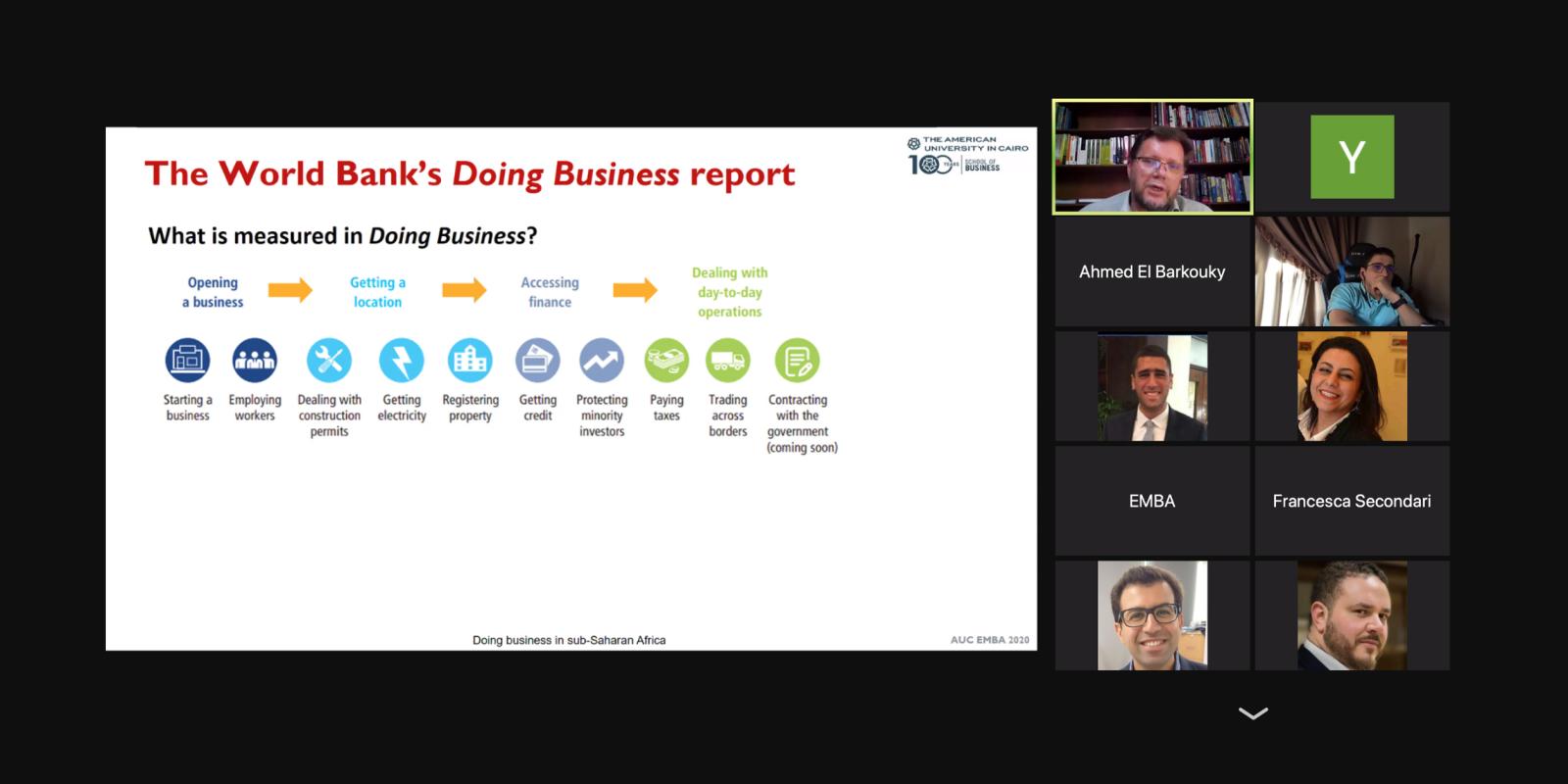
Decoding the Ciphers of Doing Business in Sub-Saharan Africa
It is generally accepted that business ventures in Sub-Saharan Africa (SSA) entail higher levels of risk than in developed markets. However, the higher risk could lead to higher returns if the risk is mitigated by following the correct market entry strategy. This requires an appreciation and contextualization of the different market entry strategies and the relevant risk mitigation options specific to SSA.
To address this challenge, AUC School of Business piloted its first Executive MBA (EMBA) online module titled "Doing Business in Sub-Saharan Africa" in partnership with The University of Stellenbosch Business School (USB) from December 10 to 12.
“It was important to capitalize on the online mode of offerings at both Schools and react to this opportunity in an agile way that meets the business needs of our students. Across the globe, business schools are looking for more ways to come out of the pandemic stronger and more resilient and relevant than ever before.” - Sherwat Elwan, director of the MBA programs and associate professor of operations management.
The course was instructed by Martin Butler, associate professor and head of teaching and learning, and Andre Rix associate professor and head of future studies, University of Stellenbosch Business School. The goal of this course was to equip students with an appreciation of the opportunities in, as well as the challenges of, doing business in SSA by creating an understanding of the contextual environment within which companies operate.
“USB ran a version of one of its modules about doing business in Africa for the AUC EMBA program. It turned out to be a great success, and we look forward to doing that again. We also hope to explore further opportunities for joint content, networking and research that would impact Africa positively.” - Jako Volschenk, head of MBA program and senior lecturer, strategy and sustainability, USB.
The course was offered to the currently enrolled EMBA cohort and spanned over three days. Upon completing the module, students were able to evaluate the interwoven environmental forces (including economics, politics, technology, social, demographic, cultural) influencing doing business in SSA economies. A framework of contextual factors was used to investigate the opportunities, as well as argue risk and return of potential market entry options for a particular product, market segment, or business whether that be for a new venture or the geographical expansion of an existing enterprise.
"The module was very beneficial, it covered macro insights about SSA and detailed strategies and tactics. It was very comprehensive and dynamic. Cases and discussions were extremely valuable.” - Feedback from Moustafa Elshenety (Intake Fall 2019).
“This course was very eye-opening. It gave me a well-rounded idea about Africa as a business region. The content was enjoyable and exceeded my expectations.” - Feedback from Omar Elazhary (Intake Fall 2019).
This module is part of an ever-growing collaboration between the School and USB. “Both The AUC School of Business and USB are triple-crown accredited business schools, and both are regarded as top schools in Africa. But at the same time, the schools are on different extremes of the continent and have quite distinct markets, implying very little direct competition”, said Volschenk.
Having similar institutional values and objectives cultures has supported the implementation of numerous joint activities between both schools on multiple levels, ranging from an undergraduate study tour to South Africa, faculty exchange, and the first USB MBA students being the first cohort to experience the School’s “Doing Business in the Middle East” program.
To learn more about the AUC School’s EMBA program, click here.
